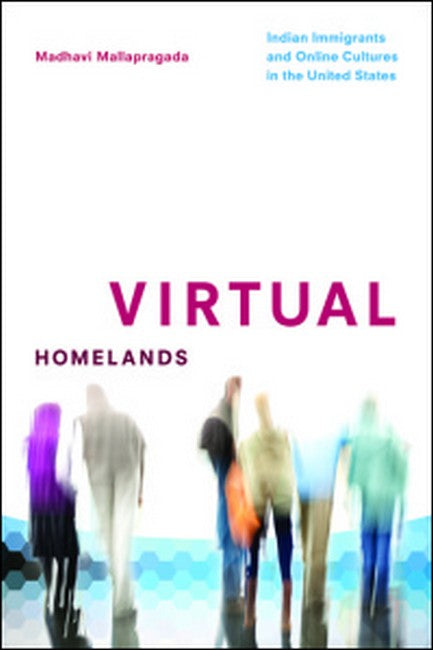How the online communities of Indian Americans blur the line between the ideas of home and abroadThe internet has transformed the idea of home for Indians and Indian Americans. In Virtual Homelands: Indian Immigrants and Online Cultures in the United States, Madhavi Mallapragada analyzes home pages and other online communities organized by diasporic and immigrant Indians from the late 1990s through the social media period. Engaging the shifting aspects of belonging, immigrant politics, and cultural citizenship by linking the home page, household, and homeland as key sites, Mallapragada illuminates the contours of belonging and reveals how Indian American struggles over it trace back to the web's active mediation in representing, negotiating, and reimagining ""home."" As Mallapragada shows, ideologies around family and citizenship shift to fit the transnational contexts of the online world and immigration. At the same time, the tactical use of the home page to make gender, racial, and class struggles visible and create new modes for belonging implicates the web within complex political and cultural terrain. On e-commerce, community, and activist sites, the recasting of home and homeland online points to intrusion by public agents such as the state, the law, and immigration systems in the domestic, the private, and the familial. Mallapragada reveals that the home page may mobilize to reproduce conservative narratives of Indian immigrants' familial and citizenship cultures, but the reach of a website extends beyond the textual and discursive to encompass the institutions shaping it, as the web unmakes and remakes ideas of ""India"" and ""America.""

